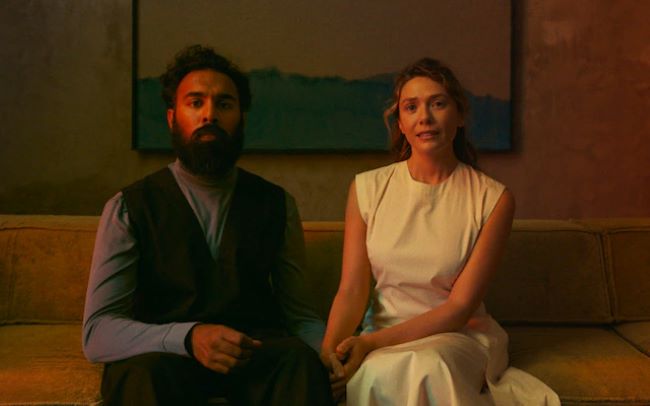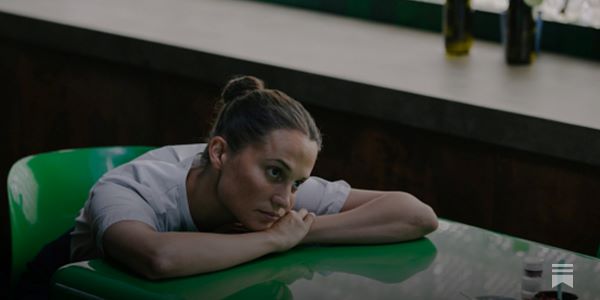The Assessment
15In 1985, the late Whitney Houston released a cover of “The Greatest Love of All” (first released in 1977 by George Benson), that features the opening line – I believe the children are our future, teach them well and let them lead the way.
And both Whitney and George were right, the human race relies on reproduction in order to exist. There is an argument for over-population, putting a strain on the natural resources of the planet and the like, but let’s face it, those little babbies are just so darn cute.
Making her directorial debut is music director Fleur Fortune, with a film, set in the near future, focusing on just that argument, where having children naturally is no longer an option.

So how do you feel about Declan Rice in a more forward role in Arsenal's midfield?
Living in a protective dome in an isolated locale near the sea are married couple Mia (Elizabeth Olsen) and Aaryan (Himesh Patel). They’re both scientists, and they have reached a point in their lives where they feel they would like to experience parenthood.
Unfortunately the state has deemed that, due the fragile nature of the environment and scarce resources, not everyone is allowed to become parents. However, the couple qualify for an assessment, due to featuring in the higher social tier of the population.
This assessment is quite an ordeal however, as an assessor, Virginia (Alicia Vikander), arrives at their home and stays with the couple over a period of seven days, assessing every aspect of their life that may have some bearing on them being parents.
But the couple soon discover that this assessment is somewhat unorthodox, as Virginia is keen to push both of them to their limits, using unconventional methods to say the least.

Could someone replace Alicia's internal batteries please? Anyone?!
Maybe it’s perhaps due to the latest season just landing on Netflix, but there’s no denying that Fortune’s debut feels eerily like an extended episode of Black Mirror. It has that familiar mix of a near future, featuring cutting edge technology, sitting alongside a slice or two of social commentary.
And as you would expect, it’s also dark in tone, pushing the boundaries between the assessor and the assessed more than anything else.
Olsen and Patel make a believable couple, as they try to navigate through the trial that is the assessment, because if they make one mistake, they fail, and no baby for them.
Vikander is her usual two dimensional self, which actually works to her benefit in this role, which is less human and more cyborg feeling, which is bang smack in the middle of Vikander’s all too limited wheelhouse.
It’s visually intriguing too, which is a plus for Fortune, who clearly has visual flair.
Unfortunately there’s no getting around the fact that the assessment itself is agonisingly long, almost as if all seven days of it are playing out in real time. As captivating as the film is, it could have done with some dramatic trimming, down to the size of an episode of Black Mirror say, with its near two hour runtime somewhat of a drag.
Still, the story is compelling, as is Fortune’s direction, which could well end up being somewhat prophetic, as some Black Mirror episodes can be, where having children could be considered a privilege and not a given right.
